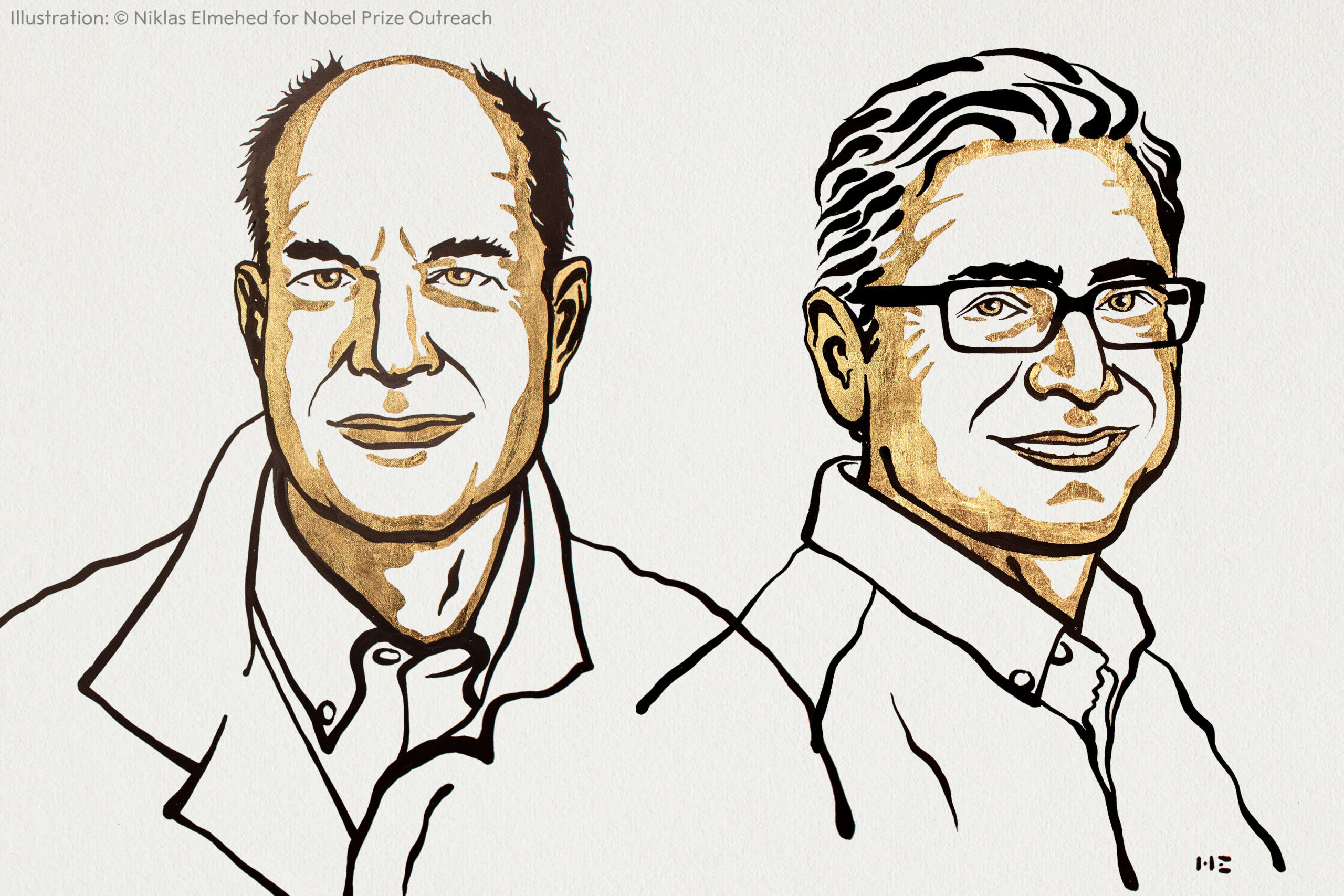Nobel Prize in Medicine awarded for research on temperature, touch
Two U.S.-based researchers are honored for their work on sensation.
Emily Harris • October 4, 2021

David Julius and Ardem Patapoutian, winners of The Nobel Prize in Physiology or Medicine 2021. Niklas Elmehed © Nobel Prize Outreach
Two researchers were awarded the Nobel Prize in Physiology or Medicine 2021 this morning for research into how humans sense temperature and pressure.
David Julius and Ardem Patapoutian were honored for their “discoveries of receptors for temperature and touch.” The discovery “has unlocked one of the secrets of nature,” said Patrik Ernfors, an adjunct member of the Nobel Committee.
We’re surrounded by a huge amount of sensory information — smells, sounds, sights. We’ve understood the basics of how our bodies make sense of this flow of information for decades: physical stimuli — like heat and touch — are somehow converted into electrical signals that make sense to our brains. But, before the work of Julius and Patapoutian, we didn’t know exactly how that happened, according to a statement by the Nobel Committee. Julius and Patapoutian discovered how molecular sensors for temperature and touch initiate electrical signals in the nervous system, thus filling in this “missing link,” according to the press release.
Julius, a researcher at University of California, San Francisco, was awarded half the Nobel Prize. In the 1990s, he used a compound found in chili peppers, known as capsaicin, to understand the molecular mechanisms behind sensations of temperature. His team identified a group of protein sensors, in the skin’s nerve endings, that respond to painful heat. That finding led him (and, independently, Patapoutian) to discover different sensors that respond to cold.
Patapoutian, at Scripps Research in La Jolla, Calif., was awarded the other half of the Nobel Prize for his role in discovering similar sensors that respond to pressure. In the early 2000s, Patapoutian and his team discovered these sensors by process of elimination, systematically testing 72 gene candidates. The 72nd — the last one they tested — helped cells respond to touch in laboratory experiments, said Ernfors. The team also identified other touch sensors in subsequent work.
This Nobel Prize was awarded for a “very major, basic scientific discovery,” said Nils-Göran Larsson, member of the Nobel Assembly. It has important implications, though, for health and medicine. “There are a lot of medical problems involving pain,” said Larsson. “These novel receptors will, for sure, be targets for drug development in the future.”
The Nobel Committee delayed their announcement for a few minutes this morning as they tried to contact Julius and Patapoutian. They eventually reached the laureates by reaching “one father and one sister-in-law.” The pair were “incredibly happy,” said Thomas Perlmann, Secretary-General for the Nobel Assembly. “And, as far as I could tell, very surprised and a little shocked.”